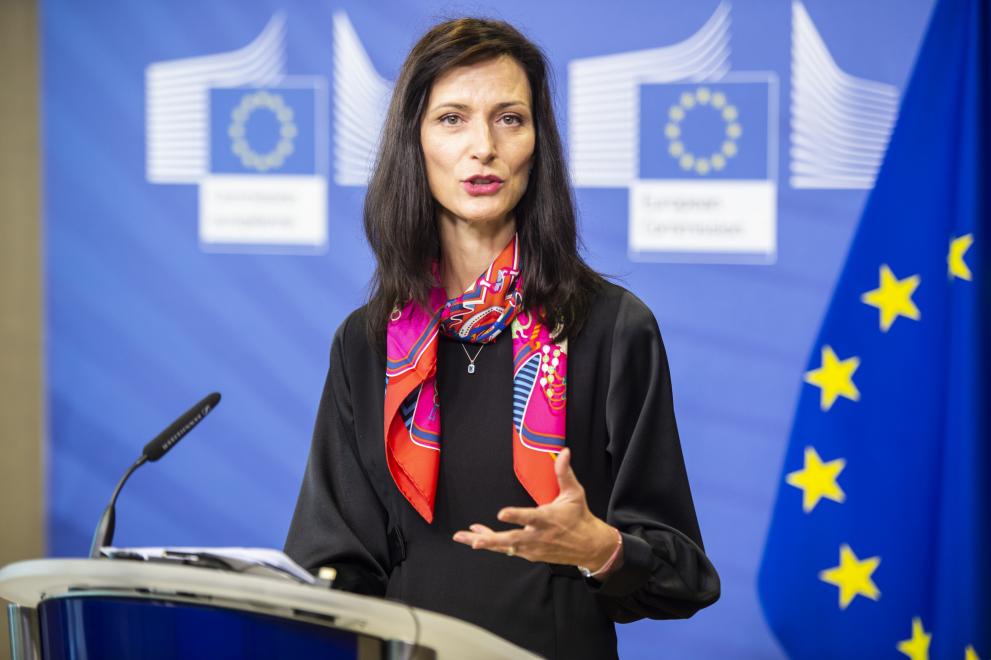
The measures deliver on the commitment by President von der Leyen's Commission to substantially reinforce both programmes, not only by allowing many more people to learn or volunteer in another country, but in particular by reaching out to increasing numbers of people with fewer opportunities.
With today's framework of inclusion measures, the Commission gives a strong boost to improve equity and inclusion in the European Education Area and lives up to the promise in the first principle of the European Pillar of Social Rights, which provides that everyone has the right to quality and inclusive education, training and lifelong learning.
Vice-President for Promoting our European Way of Life, Margaritis Schinas said: “Our European way of life is one that provides equal opportunities to all young Europeans. Inclusion and diversity are integral part of this vision. Going the extra mile to make sure that EU programmes leave no one behind is essential. The Erasmus generation has become the best ambassadors of Europe, they can share what they have experienced and it starts with fair and equal access to all the programmes.”
Commissioner for Innovation, Research, Culture, Education and Youth, Mariya Gabriel, said: “EU programmes need to benefit all, regardless of their background, socio-economic context and physical, mental or health condition. Thus making the new Erasmus+ and European Solidarity Corps more inclusive and diverse is key. We will provide more funding to accompany those who need more help and reach out to those who do not know about the programme, or hesitate. Everyone needs to be able to benefit from the same opportunities and can also give back to society. This is the value of solidarity that the European project relies on.”
The measures for the Erasmus+ and European Solidarity Corps programmes include:
- Dedicated financial support: the two programmes will provide increased financial support for people with fewer opportunities to cover any additional expenses or needs. This will contribute to removing the barriers that prevent them from participating in the programmes' activities on an equal footing with their peers. The Commission also calls on national agencies and actors implementing the programmes at national and local level to use other existing national or European funds as a complement for the financial support provided;
- Tailored support to participants throughout all phases of their project: participants will have the possibility to benefit from a number of opportunities (linguistic support, preparatory visits or reinforced mentorship for example) before, during and after their project or mobility to ensure that they get the most out of their experience;
- Support to participating organisations: the programmes will provide additional help for organisations involved in inclusive projects. It will range from additional funding to help reinforcing capacity building, to training and networking activities for their staff in the area of inclusion and diversity;
- More flexible learning offer: the programmes now offer a wider array of project and mobility opportunities of different duration and formats (virtual or physical, individual or in group) to allow all participants to find what best fits their needs;
- Priority in the selection process: the programmes include mechanisms to give priority to quality projects involving participants with fewer opportunities and addressing the themes of inclusion and diversity;
- Clearer communication and reporting: In communicating about the programmes, the Commission, national agencies, and all actors involved in the national and local level will ensure the availability of more user-friendly, accessible and multilingual documents and materials. The Commission will further develop its monitoring and reporting activities to better track progress on inclusion efforts.
The Commission will closely monitor the implementation of these inclusion measures at national level through the Erasmus+ and European Solidarity Corps national agencies. To better address the specific challenges to access the programmes within their national contexts, the national agencies will develop their own inclusion action plans, based on this general framework of inclusion measures. A network of inclusion and diversity officers in the national agencies has already been established to facilitate this work and the exchange of best practices.
To ensure the successful implementation of the measures set out today, the Commission also remains in contact with all key players, from the national agencies to the organisations active in the field of inclusion and diversity, experts, practitioners and the participants themselves.
Background
Since its launch in 1987, Erasmus and its successor programmes have given 10 million people the chance to study, train, volunteer or gain professional experience abroad. In 2014, the Erasmus+ Programme was created, integrating all the initiatives in the fields of education, training, youth and sport, in a single EU framework. The new Erasmus+ programme for 2021-2027 was launched in March 2021 with an increased budget of over €28 billion.
Kicked off in December 2016, the European Solidarity Corps exists as an EU-funded programme in its own right since October 2018. With a dedicated budget of over €1 billion for 2021-2027, the new programme offers opportunities to some 275,000 young people to help address societal and humanitarian challenges through volunteering or by setting up their own solidarity projects. As of 2022, the programme will also allow young people to volunteer in humanitarian aid activities worldwide, thus helping to tackle humanitarian challenges in safe third countries, supporting EU aid activities there.
For More Information
Erasmus+ and European Solidarity Corps Inclusion and Diversity Strategy
Details
- Publication date
- 22 October 2021
